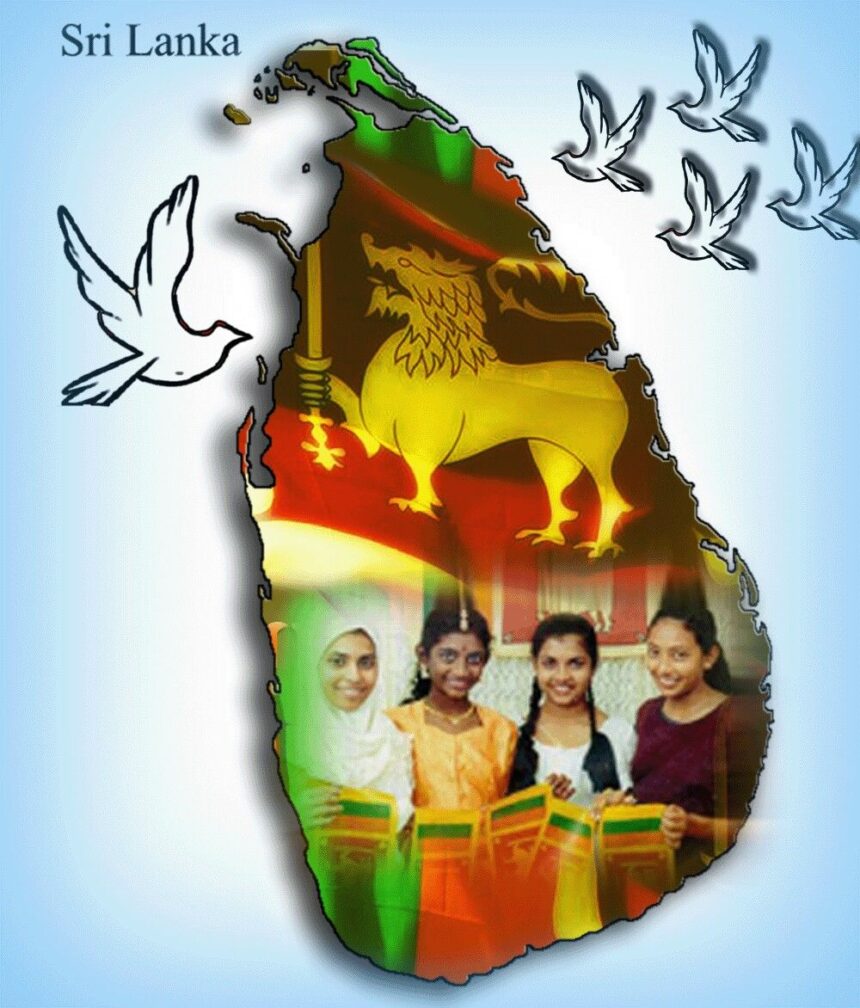🇱🇰 National Day of Sri Lanka – A Symbol of Freedom, Unity, and Resilience
National Day of Sri Lanka: Every year on February 4, the island nation of Sri Lanka commemorates its National Day, also known as Independence Day, to mark the country’s freedom from British colonial rule in 1948. But beyond the parades and patriotic songs, this day carries deep emotional, historical, and cultural weight for every Sri Lankan.
- 🇱🇰 National Day of Sri Lanka – A Symbol of Freedom, Unity, and Resilience
- 🕰️ History of National Day of Sri Lanka
- 📅 Timeline: Key Events Leading to Sri Lanka’s Independence
- 🌟 10 Interesting Facts About National Day of Sri Lanka
- ❓ Frequently Asked Questions (FAQs)
- Q1: What is the National Day of Sri Lanka?
- Q2: Is it called Independence Day or National Day?
- Q3: How is it celebrated?
- Q4: Is February 4 a public holiday in Sri Lanka?
- Q5: When did Sri Lanka become a republic?
- 💡 Significance of Sri Lanka’s National Day
- 🇱🇰 1. Celebration of Sovereignty
- 🤝 2. Call for National Unity
- 🎓 3. Reflection on Progress
- 🏛️ 4. Respect for Democratic Foundations
- 🎉 How Is It Celebrated?
- 🌍 Importance in Our Daily Life
- 🧠 Important Points to Remember
- 💌 National Day Wishing Messages
- 🧭 Impact on Society
- 🔚 Conclusion: Why February 4 Still Matters
Let’s explore the history, timeline, significance, major facts, observances, and daily life impact of this proud national holiday—and why it matters more than ever today.
🕰️ History of National Day of Sri Lanka
Sri Lanka, once known as Ceylon, was under European colonial rule for over four centuries—first by the Portuguese, then the Dutch, and finally the British. Here’s a closer look:
📍 1505: Portuguese arrive and begin colonizing coastal areas.
🧭 1658: Dutch take control from the Portuguese.
🏴 1796: British rule begins.
⚖️ 1815: Complete control gained by the British after the fall of the Kandyan Kingdom.
🗳️ 1948: After decades of peaceful resistance and constitutional reform, Ceylon gains full independence on February 4 as a Dominion of the British Commonwealth.
📌 Key Note: Ceylon officially became the Republic of Sri Lanka in 1972, but February 4 remains the most significant national milestone.
📅 Timeline: Key Events Leading to Sri Lanka’s Independence
| Year | Event |
|---|---|
| 1915 | Sinhalese-Muslim riots; British suppression leads to rise in nationalism. |
| 1919 | Formation of the Ceylon National Congress (CNC). |
| 1931 | Donoughmore Constitution gives limited self-governance. |
| 1947 | Soulbury Constitution paves the way for full independence. |
| 1948 | Independence from Britain; Ceylon becomes a dominion. |
| 1972 | New Republican Constitution; name changed to Sri Lanka. |
🌟 10 Interesting Facts About National Day of Sri Lanka
🇱🇰 The national flag, known as the Lion Flag, is hoisted across the country on February 4.
🦁 The lion in the flag symbolizes Sinhalese ethnicity and bravery.
🎆 Independence celebrations begin with a 21-gun salute.
👑 Sri Lanka was the first South Asian country to gain independence peacefully.
🎤 The president addresses the nation with a speech focused on unity and progress.
🛕 Religious observances are held in temples, churches, mosques, and kovils to bless the nation.
🎭 Cultural events showcase Sri Lankan music, dance, and costumes.
🌍 Sri Lankan embassies celebrate abroad with diplomatic receptions.
🕊️ The day emphasizes multiethnic harmony post the civil conflict that ended in 2009.
📺 National media channels broadcast patriotic films and documentaries.
❓ Frequently Asked Questions (FAQs)
Q1: What is the National Day of Sri Lanka?
A: It’s celebrated on February 4th to mark Sri Lanka’s independence from British rule in 1948.
Q2: Is it called Independence Day or National Day?
A: Both terms are used, but “National Day” is the official terminology.
Q3: How is it celebrated?
A: Through flag hoisting, military parades, religious ceremonies, and cultural programs.
Q4: Is February 4 a public holiday in Sri Lanka?
A: Yes, it’s a national holiday observed throughout the country.
Q5: When did Sri Lanka become a republic?
A: In 1972, Ceylon became the Republic of Sri Lanka, severing the last symbolic ties to the British monarchy.
💡 Significance of Sri Lanka’s National Day
🇱🇰 1. Celebration of Sovereignty
The day reminds Sri Lankans of the value of freedom, especially after 443 years of foreign rule.
🤝 2. Call for National Unity
The day emphasizes ethnic and religious harmony, a crucial goal for a country recovering from civil strife.
🎓 3. Reflection on Progress
It’s a moment to review achievements in areas like education, health, and economic development.
🏛️ 4. Respect for Democratic Foundations
Sri Lanka has maintained democratic governance since independence, with active political participation and constitutional development.
🎉 How Is It Celebrated?
Celebrations are grand, emotional, and rooted in tradition, involving:
🇱🇰 Flag hoisting ceremonies at schools, government buildings, and homes.
🎖️ Military parades showcasing the Army, Navy, Air Force, and police units.
🙏 Religious rituals in temples, churches, mosques, and kovils.
🎭 Cultural pageants highlighting Sri Lanka’s rich diversity.
🎤 Speeches by national leaders calling for unity and peace.
🕯️ Remembrance ceremonies honoring national heroes and freedom fighters.
🌍 Importance in Our Daily Life
Even in 2025, National Day holds practical and emotional significance in everyday Sri Lankan life:
1. Teaches Gratitude
People reflect on how hard-fought freedom was and the importance of safeguarding it.
2. Inspires Youth
Children learn about national heroes, civic duties, and pride in identity.
3. Promotes Unity
With 4 major religions and multiple ethnicities, the day is a chance to promote cohesion and collective purpose.
4. Economic & Cultural Pride
From traditional clothing to local cuisine, the day boosts appreciation for Sri Lanka’s unique heritage and supports local businesses.
🧠 Important Points to Remember
🇱🇰 Celebrated every year on February 4.
🕊️ Marks independence from British colonial rule in 1948.
🔔 Includes military, cultural, and religious events.
🌺 Highlights unity, progress, remembrance, and national identity.
📺 Public media and schools play an active role in spreading awareness.
💌 National Day Wishing Messages
“Wishing all Sri Lankans a Happy National Day! May our nation continue to grow in peace and prosperity.”
“Let’s honor the past, celebrate the present, and build a strong future. Happy Independence Day Sri Lanka!”
“May the lion flag always wave high with pride. Happy February 4th to every heart that beats for Lanka!”
🧭 Impact on Society
The celebration of Sri Lanka’s National Day promotes:
✅ Democratic resilience
✅ Cultural and ethnic coexistence
✅ Global recognition of Sri Lankan heritage
✅ Encouragement to safeguard freedoms
✅ Education about history and citizenship
Especially after years of internal conflict and rebuilding, this day reinforces the hope for lasting peace and shared progress.
🔚 Conclusion: Why February 4 Still Matters
The National Day of Sri Lanka is more than a ceremonial event. It’s a sacred reminder of how far the country has come and how much more is possible when unity, tolerance, and justice guide national life.
In today’s world of rapid change, holding on to the values of freedom, identity, and harmony is more important than ever. Sri Lanka’s journey is proof that even after centuries of colonization and decades of conflict, a nation can rise, rebuild, and thrive.
Let February 4 be a day not just of reflection but of renewed commitment to being citizens who protect and uplift the land they love.








